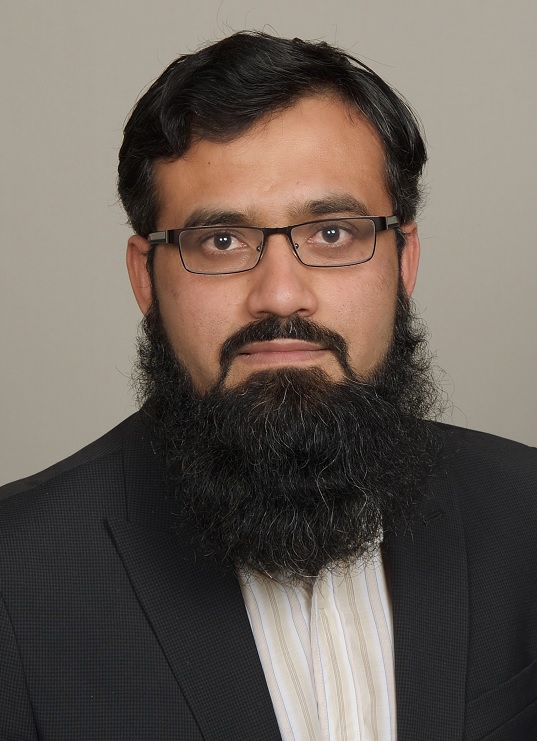
Ph.D. graduate to become assistant professor at Purdue
Recent Computer Science and Engineering Ph.D. graduate Abdul Salam has joined Purdue this fall as an assistant professor.
Salam successfully defended his thesis, “Pulses in the Sand: Long Range and High Data Rate Communication Techniques for Next Generation Wireless Underground Networks,” in July. Salam was advised by Susan J. Rosowski Associate Professor Mehmet Can Vuran, whom he has been working with in the Cyber-Physical Networking lab since 2013.
“I think working in the Computer Science Department and working in the CPN Lab under the mentorship of Dr. Vuran was really a priceless opportunity,” Salam said. “I am exceedingly thankful to him. Dr. Vuran encouraged me to work in the area of wireless underground communications. No words can ever fully express my gratitude for his great mentorship. It has been an honor being his student. I am very grateful to have been trained by him. His encouragement has been a great inspiration to achieve excellence. He has not only guided me for the research work in this area, but also gave me the excellent guidance and support that has helped me to secure the faculty position at the Purdue University. I am indebted to Dr. Vuran for everything that I have learnt from him. His expertise in wireless communications and cognitive radio networks have been a great inspiration for me.”
During his five years in the program, Salam was highly engaged in the CPN Lab and department. In addition to contributing to the lab’s Connected Barriers project, he presented work at many conferences and produced more than 10 publications and journals. In August 2016, Salam was awarded the Best Student Paper award in the International Conference on Computer Communication and Networks for his paper titled “Impacts of Soil Type and Moisture on the Capacity of Multi-Carrier Modulation in Internet of Underground Things.”
“He is very ambitious. He is the dictionary definition of self-driven,” Vuran said. “He is very knowledgeable and open to learning new things. He’s one of few experts in the field of wireless underground communication.”
While Salam’s research focused primarily on computer networking, wireless communications, and Internet of Things, he also explored many other areas of study in order to craft his thesis. His course work ranged from soil science studies to antenna theory. Through those studies, he was able to develop the first-ever wireless underground sensor-network test bed in a greenhouse.
“This research is key to development of next generation wireless underground communication systems, because the communication ranges are short,” Salam said. “In my research here, we’ve developed those techniques which can enhance the range of underground communications and also provide the high data rate solutions for that.”
Those solutions could provide benefits for many, particularly farmers around the world. Expanded communication options could allow irrigation equipment to better distribute and ultimately conserve water so more countries could provide adequate food for their increasing populations.
In addition to his groundbreaking research and contributions to departmental projects, Salam also assisted many undergraduate and graduate students in the CPN lab.
“He’s sort of my Swiss army knife,” Vuran said. “He’s done everything from mentoring other students in the lab on the Connected Barriers project, programming software radios, designing experiments. He’s going to be a rock star I’m sure of that.”
Salam credits his faculty mentors, colleagues, wife, and three daughters, his success in the program and new role at Purdue.
“It was a really great experience during these five years, and of course without their support, it would not have been possible.”